Share
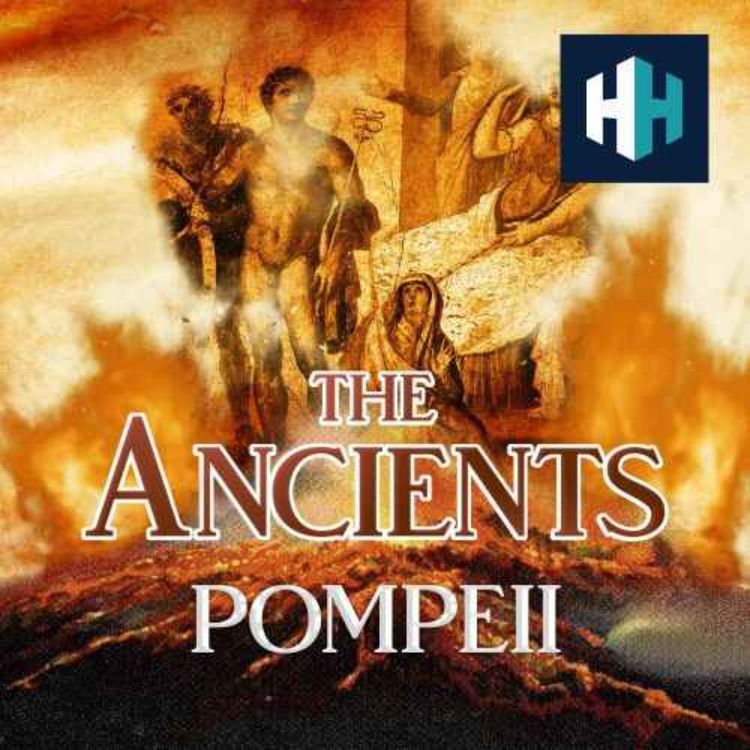
The Ancients
Pompeii: The Eruption of Vesuvius
This episode contains references to scenes that some listeners may find distressing
In 79 AD, ancient armageddon hit Pompeii: Mount Vesuvius erupted, freezing in time a town and its inhabitants.
Nearly 2000 years on, Pompeii's story continues. In the last episode of our special mini series, we're exploring the stages of the eruption, how the town was buried, and how it was eventually found nearly 1500 years later.
Hear from our only eyewitness account, Pliny the Younger, on what the tragedy looked like, discover what the Romans knew after the eruption and why they came back, and how Caroline Bonaparte, Napoleon's sister, contributed to first efforts of public conservation.
The series was written and produced by Elena Guthrie
The Assistant Producer was Annie Coloe
It was edited and mixed by Aidan Lonergan
The voice actor was Wilfred Duggan
Discover the past on History Hit with ad-free original podcasts and documentaries released weekly presented by world renowned historians like Dan Snow, Suzannah Lipscomb, Lucy Worsley, Matt Lewis, Tristan Hughes and more. Get 50% off your first 3 months with code ANCIENTS. Download the app on your smart TV or in the app store or sign up here.
You can take part in our listener survey here.
For more Ancient's content, subscribe to our Ancient's newsletter here.
More episodes
View all episodes
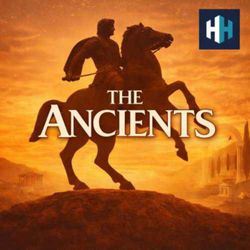
637. Alexander the Great | Lord of Asia
01:16:46||Ep. 637As friendships fracture and old alliances break, Tristan Hughes and Dr Adrian Goldsworthy chronicle the epic downfall of Alexander the Great. Alexander’s relentless campaigns from Bactria to Babylon push his empire, army and inner circle to breaking point, hear the battles, betrayals and decisions that hastened a legendary conqueror’s tragic end.MOREThe Romans and India with William DalrympleListen on AppleListen on SpotifySuccessors of Alexander the GreatListen on AppleListen on SpotifyPresented by Tristan Hughes. Audio editor is Aidan Lonergan and the producer is Joseph Knight. The senior producer is Anne-Marie Luff.All music courtesy of Epidemic SoundsThe Ancients is a History Hit podcast.Sign up to History Hit for hundreds of hours of original documentaries, with a new release every week. Sign up at https://www.historyhit.com/subscribe. You can take part in our listener survey here: https://insights.historyhit.com/history-hit-podcast-always-on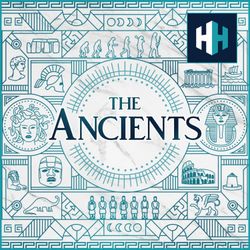
636. The House of Ramesses II: Egypt's Greatest Pharaoh?
58:29||Ep. 636The name of Ramesses the Great is etched deeper into Egypt than almost any other ruler. Colossal statues moulded in his image tower over the Nile. Reliefs of his victories are carved into countless temple walls. But were did Ramesses II come from? And how was this legend of Egyptian history born?In this episode of The Ancients, Tristan Hughes is joined by Dr Campbell Price to uncover the rise of the House of Ramesses and the century of crisis that paved the way for Egypt’s most famous pharaoh. From dynastic turmoil and religious upheaval to military revival and monumental propaganda, discover how Ramesses II seized his moment and shaped a legacy that has endured for over 3,000 years. Was he Egypt’s greatest ruler or its greatest architect of reputation?MOREThe Great SphinxListen on AppleListen on SpotifyThe Pyramids of GizaListen on AppleListen on Spotify Watch this episode on our YouTube channel: @TheAncientsPodcastPresented by Tristan Hughes. Audio editor is Aidan Lonergan. The producer is Joseph Knight. The senior producer is Anne-Marie Luff.All music courtesy of Epidemic SoundsThe Ancients is a History Hit podcast.Sign up to History Hit for hundreds of hours of original documentaries, with a new release every week. Sign up at https://www.historyhit.com/subscribe. You can take part in our listener survey here:https://insights.historyhit.com/history-hit-podcast-always-on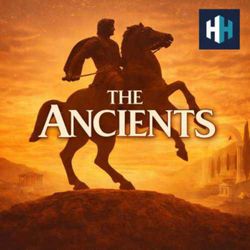
635. The Fall of Persia | Alexander the Great
01:13:44||Ep. 635Tristan Hughes and Dr Adrian Goldsworthy continue the special series on Alexander the Great, delving into the epic sieges of Tyre and Gaza in 332 BC, and Alexander's triumphant campaign through Egypt. They explore the strategic brilliance at the Battle of Gaugamela, the fall of Persepolis, and the eventual demise of Darius III. As Alexander's army pushes further east, tackling internal conspiracies and relentless combat, they traverse the formidable landscapes of Bactria and Afghanistan, capturing Alexander's the blend of military genius, relentless ambition, and the complex legacy of one of history's most formidable commanders.MOREThe Ancient AmazonListen on AppleListen on SpotifyThe Walls of BabylonListen on AppleListen on SpotifyPresented by Tristan Hughes. Audio editor is Aidan Lonergan, the producer is Joseph Knight. The senior producer is Anne-Marie Luff.All music courtesy of Epidemic SoundsThe Ancients is a History Hit podcast.Sign up to History Hit for hundreds of hours of original documentaries, with a new release every week. Sign up at https://www.historyhit.com/subscribe. You can take part in our listener survey here: https://insights.historyhit.com/history-hit-podcast-always-on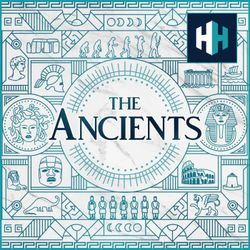
634. The Skulls of Jericho
53:53||Ep. 634In the depths of ancient Jericho, beneath layers of earth dating back 10,000 years, archaeologists uncovered something extraordinary: human skulls cast in plaster, their faces carefully reconstructed and their eyes set with shells. Who were these haunting figures meant to represent?In this episode of The Ancients, Tristan Hughes is joined by archaeologist Raven Todd DaSilva to explore the mysterious plastered skulls of Jericho. Dating to the Neolithic period, these striking objects reveal complex beliefs about memory, identity and the dead in some of the world’s earliest farming communities. How were they made? What did they mean? And why did this unusual practice spread across the Levant? Join us to dive into one of prehistory’s most compelling archaeological discoveries.MOREJericho:Listen on AppleListen on Spotify Origins of the Inuit:Listen on AppleListen on Spotify Watch this episode on our YouTube channel: @TheAncientsPodcastPresented by Tristan Hughes. Audio editor is Aidan Lonergan. The producer is Joseph Knight. The senior producer is Anne-Marie Luff.All music courtesy of Epidemic SoundsThe Ancients is a History Hit podcast.Sign up to History Hit for hundreds of hours of original documentaries, with a new release every week. Sign up at https://www.historyhit.com/subscribe. You can take part in our listener survey here:https://insights.historyhit.com/history-hit-podcast-always-on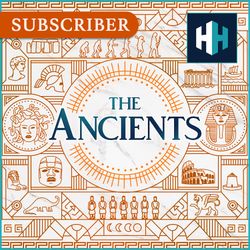
633. After Ancients: Sir Barry Cunliffe
31:45||Ep. 633In this special subscriber episode, we have an exclusive interview with the renowned archaeologist, Sir Barry Cunliffe.Barry shares insights from his extraordinary 50-year career, detailing his early days, notable excavations, including at Fishborne Roman Palace, where a last-minute dig unearthed a significant mosaic, and the challenging excavation of the sacred, but deadly, spring in Bath.Presented by Tristan Hughes. Audio editor is Aidan Lonergan. The producer is Joseph Knight. The senior producer is Anne-Marie Luff.All music courtesy of Epidemic SoundsThe Ancients is a History Hit podcast.Sign up to History Hit for hundreds of hours of original documentaries, with a new release every week. Sign up at https://www.historyhit.com/subscribe. You can take part in our listener survey here:https://insights.historyhit.com/history-hit-podcast-always-on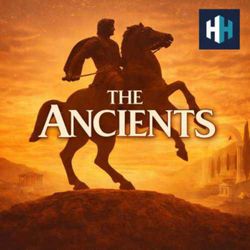
632. The Invasion of Persia | Alexander the Great
01:04:55||Ep. 632In spring 334 BC, a young Macedonian king sets out to conquer the Persian Empire.Tristan Hughes and Dr Adrian Goldsworthy explore Alexander the Great’s early campaigns, from the daring crossing into Asia to incredible victories. They discuss Alexander's strategic genius, respect toward Persian royalty, and how these triumphs forged his path to legend.MOREThe PersiansListen on AppleKing MidasListen on AppleListen on SpotifyPresented by Tristan Hughes. Audio editor is Aidan Lonergan, the producer is Joseph Knight. The senior producer is Anne-Marie Luff.All music courtesy of Epidemic SoundsThe Ancients is a History Hit podcast.Sign up to History Hit for hundreds of hours of original documentaries, with a new release every week. Sign up at https://www.historyhit.com/subscribe. You can take part in our listener survey here: https://insights.historyhit.com/history-hit-podcast-always-on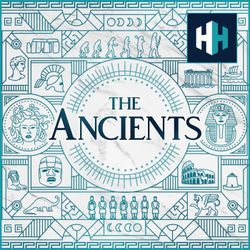
631. How to Write Cuneiform with Dr. Irving Finkel
01:00:21||Ep. 631More than 5,000 years ago, a revolutionary script emerged in the fertile lands of Mesopotamia that would transform how people counted, governed, worshipped and told stories. This was cuneiform, the world’s earliest known writing system.In this episode of The Ancients, Tristan Hughes is joined by Dr Irving Finkel to uncover how cuneiform actually worked and how you would write it yourself. From humble beginnings as simple pictograms tracking beer and grain, to the wedge-shaped signs that recorded myths, laws and epic tales long before the Bible, this episode explores how cuneiform spread across Sumer, Babylon, Assyria and Persia — and why these clay tablets remain one of archaeology’s richest windows into the ancient world.MORENoah's Ark and the FloodListen on AppleListen on Spotify The World's Oldest LettersListen on AppleListen on Spotify Watch this episode on our NEW YouTube channel: @TheAncientsPodcastPresented by Tristan Hughes. Audio editor is Aidan Lonergan. The producer is Joseph Knight. The senior producer is Anne-Marie Luff.All music courtesy of Epidemic SoundsThe Ancients is a History Hit podcast.Sign up to History Hit for hundreds of hours of original documentaries, with a new release every week. Sign up at https://www.historyhit.com/subscribe. You can take part in our listener survey here:https://insights.historyhit.com/history-hit-podcast-always-on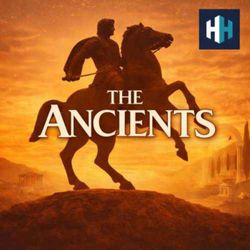
630. Alexander the Great | Rise to Power
01:24:13||Ep. 630NEW SERIES! Journey through the early life of Alexander the Great, from his education under Aristotle to his first military experiences and rise to Macedonian kingship.In this first episode, charting Alexander's incredible early life, Tristan Hughes and Dr Adrian Goldsworthy explore Alexander's formative years, the Battles that built the world's most formidable military leader and the immediate challenges following his father's assassination.MOREThe Rise of Hannibal with Adrian GoldsworthyListen on AppleListen on SpotifyDarius the Great, Persian King of KingsListen on AppleListen on SpotifyPresented by Tristan Hughes. Audio editor is Aidan Lonergan and the producer is Joseph Knight. The senior producer is Anne-Marie Luff.All music courtesy of Epidemic SoundsThe Ancients is a History Hit podcast.Sign up to History Hit for hundreds of hours of original documentaries, with a new release every week. Sign up at https://www.historyhit.com/subscribe. You can take part in our listener survey here: https://insights.historyhit.com/history-hit-podcast-always-on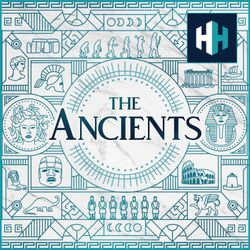
629. Adam and Eve
59:05||Ep. 629Adam and Eve: parents of humanity, or characters in a Near Eastern myth about wisdom, mortality, and the limits of being human?Tristan Hughes and Dr Dylan Johnson strip away the Sunday school varnish to re-examine the story of Adam and Eve, starting with the question: was there really an apple? They discuss the origins and multiple layers of the story, try and pinpoint where Eden might have been located, and trace the tale of lost immortality that echoes through the legends of Gilgamesh, Sumerian rivers, and the earliest biblical textsMOREMoses & The ExodusListen on Apple Listen on SpotifyThe Ark of The CovenantListen on Apple Listen on SpotifyWatch this episode on our NEW YouTube channel: @TheAncientsPodcastPresented by Tristan Hughes. Audio editor is Aidan Lonergan. The producer is Joseph Knight. The senior producer is Anne-Marie Luff.All music courtesy of Epidemic SoundsThe Ancients is a History Hit podcast.Sign up to History Hit for hundreds of hours of original documentaries, with a new release every week. Sign up at https://www.historyhit.com/subscribe. You can take part in our listener survey here:https://insights.historyhit.com/history-hit-podcast-always-on